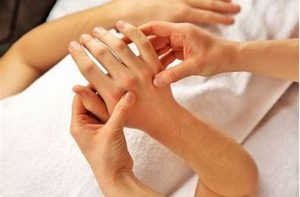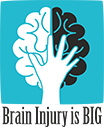empowering the severely brain injured and their families via support, understanding and a network of care
Massage
 The role of a massage therapist involves working along side a wider multi-disciplinary team which enables them to gain valuable insight and knowledge of how best to adapt their skills and treatments, they do this by using a Holistic approach in all their work. Massage has many benefits to patients with a neuro-disability as it treats the whole person, considering the physical, emotional and psychological aspects of the individual and looking beyond the disability itself. Massage is essentially communication through touch and involves a positive, one to one, interaction and sensory experience.
The role of a massage therapist involves working along side a wider multi-disciplinary team which enables them to gain valuable insight and knowledge of how best to adapt their skills and treatments, they do this by using a Holistic approach in all their work. Massage has many benefits to patients with a neuro-disability as it treats the whole person, considering the physical, emotional and psychological aspects of the individual and looking beyond the disability itself. Massage is essentially communication through touch and involves a positive, one to one, interaction and sensory experience.
About massage………
Massage employs manipulation to soft tissue and deeper skin layers to enhance the function of the body and to promote relaxation and well being. It stimulates the circulation of blood, improves lymphatic flow, boosting the immune system and speeding up the elimination of waste, bringing vital oxygen to the tissues. These benefits are especially important when a person is wheelchair or bed bound. Lymphatic flow for example becomes stagnant when the body is motionless for long periods. Muscles tighten, joints become stiff and rigidity can set in. It is important to use a variety of movements and techniques to maximise these benefits.
How can massage help?
As part of supportive care massage can help with symptom control. For example massage may help with alleviating some of the following symptoms.
• Low moods
• Depression
• Anxiety
• Poor sleep
• Constipation
• Oedema
• Muscular tension
• Spasms
• Aches and pains
• Dry skin conditions
• Pressure Sores
Most patients will experience relief from at least some of these symptoms. In addition treatments can have a ripple affect benefiting those who care for the patients, including staff and family who feel supported. Each treatment offers a therapeutic interaction and provides a one to one session that over time helps to build a rapport between therapist and patient which in some cases is as important as the massage itself.



